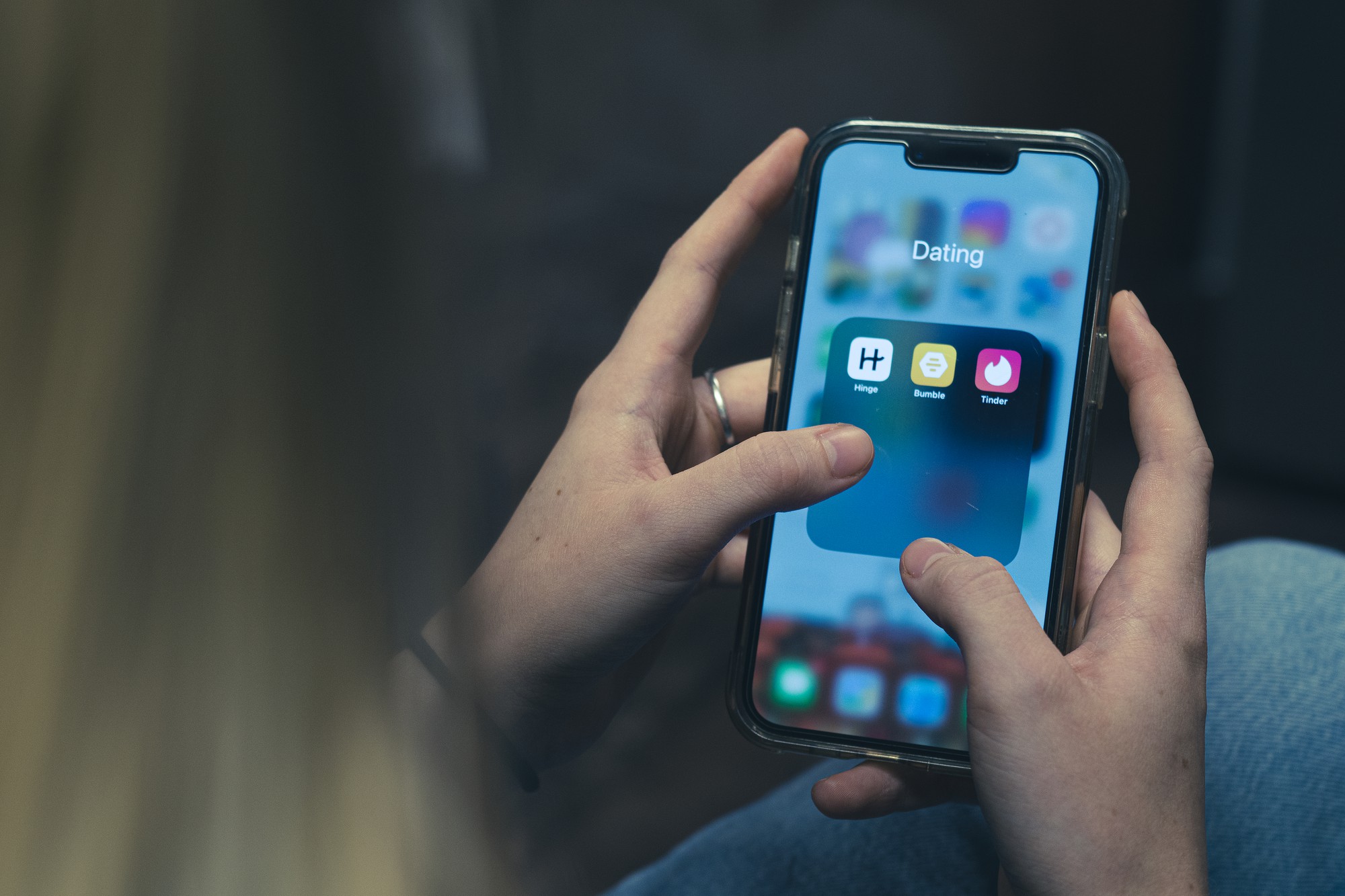As college students, stuck in the awkward stage between teenage and adult years, we are exposed to a multitude of responsibilities and new experiences. Even as we transition into adulthood, we remain victims of teenage tendencies, such as that of following in our friends’ footsteps. We want to keep up with and jump in on the latest trends. One such prevalent trend on campus is using dating apps.
“Everyone has it in college; that’s how I ended up on it. All your friends have it, especially all your single ones,” said second-year human biology & society student Lizbeth Nisperos. She came into college certain that she would not want a relationship in her first year. However, when she felt satisfied with her work-life balance, Nisperos decided to try dating apps out of curiosity. She was pleasantly surprised to have met her current boyfriend through the dating app Hinge. “It was just kind of funny that, like, out of all the places, I met him on a dating app,” she recalled.
Nisperos also remarked on how the experience can vary based on personality. “It depends on how you put yourself out there — the way you communicate what you actually want — even if you’re just casually dating,” she said.
Second-year psychobiology student Arianna Zhou also stressed the importance of communication and clarity, especially when setting boundaries. Her experience with dating apps has been largely positive, as they have taught her a lot about relationships. Through their experiences, both Nisperos and Zhou have figured out their dating goals. “There’s two sides of the coin to my experience on dating apps. Number one is my engagement with these apps; the second is the human connection aspect,” said Zhou. The swiping was often addictive, and she found herself spending hours at a time on dating apps. However, she acknowledges that it wasn’t healthy. In fact, she often ended up deleting and reinstalling the apps.
There is a lot of stigma surrounding dating apps, particularly on their ability to perpetuate the growth of casual dating culture. Nisperos agreed with the stigma to a certain extent, talking about how it affected the relationship dynamics during the initial stages of meeting. “Just because you know there’s such a stigma behind dating apps that you want to make sure what you’re getting yourself into,” she said.
Zhou felt that the increasingly common idea of casual relationships was reflected in the way people on the app treated her. “People that you think you have an emotional connection with or get attached to can just leave you, just like that,” she remarked while elaborating on one of her experiences. She was taken aback by how readily one of her matches had ghosted her on the app. “When she cut things off, she didn’t really have to worry about seeing me again on a regular basis,” said Zhou, recalling how she was caught off guard. Something that had meant a lot to her was brought to an abrupt end. However, she acknowledged it as a much-needed reality check that only made her stronger.
On a huge campus, bustling with crowds of students rushing from one class to another, it can be hard to make new connections, especially those with romantic potential. Zhou believes that dating apps make it easier to meet people, especially those with similar intentions. Second-year psychology student Mina Hakimi, on the other hand, finds it somewhat unnatural. She thinks it is a cool way to find people, especially if you’re comfortable putting yourself out there online. However, she claims to be old-fashioned, preferring to meet people in a more natural setting. “Personally, I would rather be single till I’m fifty years old than join a dating app,” said Hakimi. She finds it scary to put herself out there in that sense and doesn’t feel ready for what it brings. In contrast, Zhou said, “It’s kind of made me realize that I am worthy of love and interest from other people.” She felt that dating apps helped build her self-esteem and led to self-growth, introducing her to the exciting yet confusing world of modern dating.
Nisperos, Zhou and Hakimi all stressed the importance of loving yourself first. “There’s times where you’re going to feel lonely and bored, but that’s not a good enough reason to get into a relationship,” said Nisperos. According to her, it’s important to take your time and be picky. “If you’re interested in someone, you shouldn’t be afraid to show them that, ‘Hey, I really like you,’ and put yourself out there,” said Zhou. She reiterated the significance of setting boundaries and ultimately just having fun. Hakimi said, “Someone else is always going to be temporary. The only permanent thing in your life is yourself.” She believes it isn’t good to rely on someone else as your source of happiness.
At the end of the day, college is a time when everyone is trying to figure things out. It is about self-discovery, challenging yourself and, if you’re up for it, stepping out of your comfort zone. It can be terrifying to face the trials and tribulations of young adulthood as we traverse uncharted territory, but dating apps are a possible way to try.
—-
Featured Image Photographed by Patrick Shao/BruinLife

